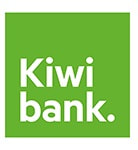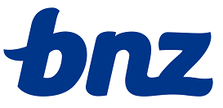Compare Business Loans - July 2024
Do you need a business loan? Our guide explains secured and unsecured, peer-to-peer, crowdfunding and loan alternatives, and shortlists trusted business loan lenders who have a genuine willingness to lend.
Updated 20 July 2024
Looking for a business loan? Know this first:
Our guide covers the following:
Useful resources:
- Prepare your business plan or financial documents carefully – lenders are quick to look for what’s wrong with an application as a reason to decline a loan application, so thorough checks are critical.
- Consult with an accountant or mentor to double-check that what you have calculated as a business loan is appropriate and realistic. You will no doubt be enthusiastic about your business prospects, but having a second set of eyes is always a good idea.
- No business loan is like another – the terms, interest rate and amount are tailored to the needs of each business.
- No lender will publish their business loan interest rates upfront - this makes comparing lenders difficult. To get the most cost-effective loan, you must be prepared and informed.
- Business loans are all about the risk to a lender - the more security you can offer, or the better your cash flow, the better the terms of any loan.
- Advertising Disclosure: We may receive a commission if you take out a loan, but this does not influence our shortlist or comparisons. Interest rates vary based on each borrower, and assessment times vary.
- Are you a startup or a new business? Lenders don't typically accept applications unless you're a stable business with a proven history. If you want money to start a business, options include angel investors, venture capital, government grants, and crowdfunding.
Our guide covers the following:
- Interest Rates
- Types of Business Loans and Common Uses
- The Pros and Cons of Business Loans
- Business Loan Lenders
- Alternatives
- Frequently Asked Questions
Useful resources:
- Are you looking for alternatives to loans? Our guides to finance leases and operating leases explain your options. We also suggest reading our Business Borrowing Options guide which summarises a range of funding options available.
- If you're looking to improve cash flow, our guides to getting overdue debtors to pay your invoices and tips for reducing business costs are popular resources.
Maximise Your Business Potential with MoneyHub's Top-Rated Lender Choice
|
If you're looking for a business loan, choosing a lender that offers competitive rates, fair terms and wants to lend is essential. In our search for such lenders, one name that stands out is Prospa.
Prospa: A Practical Choice for Business Borrowers Our research indicates that Prospa often offers lower interest rates and fees than many traditional lenders, helping businesses manage costs effectively. We have seen it become popular with many MoneyHub users who are business owners. Straightforward Application Process Applying with Prospa is simple and takes just a few minutes. There's no commitment required when you apply, so you're free to consider your options without any pressure. Why Comparing Rates Matters We always suggest business owners compare different loan offers. Applying with Prospa is free, and by comparing, you increase your chances of finding a loan that suits your business's needs and budget. Long-Term Impact of Your Interest Rate The interest rate on your loan will influence your repayments over time. Considering how this will affect your business finances in the long run is important. Our Advertising Transparency MoneyHub may receive a referral commission, but this does not influence our recommendations. Our priority is to provide reliable and unbiased information. Interest rates and assessment times can vary based on your circumstances. Get Started Visit Prospa to explore their offerings and see if they meet your business lending needs. Remember, making an informed choice will almost always make a big difference to your business's financial future. |
Christopher Walsh
MoneyHub Founder Our Top Business Loans Provider:
|
MoneyHub Founder Christopher Walsh summarises key business loan facts in the video below:
MoneyHub Founder Christopher Walsh shares his views on business loans:
|
"Every business is different, and many banks have continued to deny many loan applications. I am frustrated with banks who refrain (under somewhat of a national policy) from lending to businesses, thus indirectly limiting New Zealand's economic growth.
The MoneyHub research team continuously updates this guide to explain the nuances of business loans that lenders won't tell you and present the best lending offers currently available. Making business loan applications can be frustrating - many lenders are not interested in understanding your business and push back, ask for too many things that are arguably irrelevant, or just give an outright no. However, I believe there is a better way to navigate the process, and I hope this guide helps you. At times of record living costs, access to additional working capital is essential. This guide is designed to help you present the best case and secure financing so you can focus on running your business". |
MoneyHub Founder
Christopher Walsh |
Know this first: Can I get a business loan?
The best answer is 'it depends'. Business loans are very high risk to lenders, so unlike a car loan or personal loan, business loans require a lot of documentation. Lenders will look at the following:
- Your personal credit history, including existing borrowing
- Your business plan and business accounts (profit and loss, balance sheet and cash flow statement)
- Your bank statements
- Lenders will also focus on your debtors (payments from your customers) and your bank balance to see your cash position, indicating your ability to meet the interest costs and repayment terms.
- Future budgets, financial forecasts and any key information about new customers or business events will need to be disclosed.
- The likelihood of being approved will depend on your financial situation – up-to-date accounts are essential. If you’re applying for a loan on 6 May, accounts ending 30 April are best – accounts as at 31 December the year before are unhelpful and will raise questions.
Interest Rates on Business Loans
- The interest rate you are offered will vary between lenders, and your unique business circumstances will influence it.
- Unlike credit card or mortgage interest, which is fixed, business lending interest rates vary wildly.
- For example, an established and profitable company like The Warehouse Group could probably arrange a business loan at 6% or 7% p.a. In contrast, a new café operating for less than six months may be offered 15% p.a. or more. As a reference point, ASB business loans are charged at around 10% to 12% p.a. plus a 'margin' - the riskier the loan, the higher the margin.
- Banks assess the risk of the business by looking at all the information you supply to calculate an interest rate that suits the risk. Because there are so many variables, we cannot suggest any guidance on interest rates.
Useful resources:
- Are you looking for alternatives to loans? Our guides to finance leases and operating leases explain your options. We also suggest reading our Business Borrowing Options guide which summarises a range of funding options available.
- If you're looking to improve cash flow, our guides to getting overdue debtors to pay your invoices and tips for reducing business costs are popular resources.
Types of Business Loans
There are three different business loans you can consider before making an application. There are benefits and downsides to each, which we outline below. The terms you receive will vary between the bank, building society, specialist business lender or peer-to-peer lender.
1. Unsecured business loans
An unsecured business loan is borrowing that doesn’t use your home or business as security. This means if you can’t repay the loan, the lender won’t have an automatic right to take possession of any assets you own. The downside is that the interest rate is usually higher than a secured loan (as there is more risk), and the amount you can borrow will be limited to, in most cases, around $50,000.
2. Secured business loans
A secured business loan involves a personal guarantee, security over whatever's being purchased with the loan, or over assets in the business. It is also common for your home to be offered as security. Secured loans offer a more substantial borrowing amount with a lower interest rate (compared to unsecured loans, as the lender has an asset to claim if you can't meet repayments). But the risks are high – if your business doesn't go to plan and you can't repay the loan, the lender can take your home, car or business assets.
Common Uses of Business Loan Money:
To explain the transformative impact of well-chosen financing on a business, we've outlined some example case studies below. These are designed to showcase the challenges, solutions, and outcomes facilitated by different types of business loans.
Each story highlights how businesses facing unique challenges strategically use the loan money to fuel their growth, optimise operations, and adapt to market demands. We publish them to help you identify where the money from a business loan would be spent.
Case Study 1: Café Expansion
Case Study 2: Retail Store Upgrade
Case Study 3: Manufacturing Business Working Capital
Each story highlights how businesses facing unique challenges strategically use the loan money to fuel their growth, optimise operations, and adapt to market demands. We publish them to help you identify where the money from a business loan would be spent.
Case Study 1: Café Expansion
- Business: Bean There is a popular local café in Auckland.
- Challenge: Required funds to renovate and expand their seating area and to add a bakery section.
- Loan Solution: A secured business loan of $100,000, using the café premises as collateral.
- Application Process: Worked with a local bank, providing financial statements and a renovation plan showing the potential for increased business.
- Use of Funds: Completed renovations, added bakery equipment, and hired additional staff.
- Outcome: The expanded café attracted more customers, especially in the mornings, increasing daily sales by 40%.
Case Study 2: Retail Store Upgrade
- Business: Fashion Forward is a boutique clothing store in Wellington.
- Challenge: Needed to upgrade its inventory management system and refurbish the store to remain competitive.
- Loan Solution: A $50,000 online business loan.
- Application Process: Applied through an online lending platform, showcasing their strong sales history and a detailed project plan.
- Use of Funds: Implemented a state-of-the-art inventory system and refurbished the store interior.
- Outcome: The improvements led to better stock management, enhanced customer experience, and a 30% increase in sales over six months.
Case Study 3: Manufacturing Business Working Capital
- Business: Innovative Manufacturing Ltd is a small but growing manufacturer of specialised automotive parts based in Christchurch.
- Challenge: The company faced cash flow issues due to delayed payments from major clients and needed funds to maintain operations and fulfil new orders.
- Loan Solution: A $100,000 working capital loan.
- Application Process: After being turned down by traditional banks due to the short operational history, they secured a loan from an alternative online business lender who valued the company's strong order book and existing client relationships.
- Use of Funds: Funds were used to cover daily operational costs, such as raw materials, utility bills, and employee salaries.
- Outcome: The loan bridged the cash flow gap, allowing the company to continue operations uninterrupted. The company was able to complete orders on time, leading to increased client trust and larger subsequent orders.
Pros and Cons of Business Loans
Pros:
Cons:
- Business loans offer repayment certainty - the terms offered usually involve a fixed interest rate and fixed repayment period, so your cash outflow for the loan term, i.e. the monthly repayment, is agreed on upfront and won't change. This lets you budget accordingly.
- Business loans with floating interest rates are riskier - monthly payments move with the Reserve Bank of New Zealand's Official Cash Rate, so your monthly repayments can go up or down depending on how often it moves.
- Repayment terms can be flexible - some lenders may offer a repayment holiday, meaning you can pause the repayments if you're waiting to be paid by your customers. The risk is that extra interest is charged, meaning your loan will be more expensive overall.
- You avoid the need for further investors - getting more shareholders is an alternative to a business loan, but you ultimately dilute your own shareholding. This means you will have less control over your business and will need to spend time answering questions about the business to shareholders. If the amount of money you need to take your business to the next level is significant, raising money from shareholders can be a better option.
Cons:
- Loan terms can be demanding - lenders don't want to be kept in the dark, so you may need to agree to terms which allow the lender to monitor the performance of your business. This can mean providing regular financial statements, business updates and financial stress tests, known as loan covenants. This can distract you from running your business if you're not organised and systematic in getting the information promptly.
- Loss of property - if your loan is secured and you later default, the security can be claimed, meaning you can lose personal property such as a house and car. This is a significant risk - business owners routinely lose their homes and other property when their business fails.
- Early-repayment fees - if you want to repay the loan before the end of the term, the lender can charge a fee. If you think this is realistic, ask for a business loan without early-repayment penalties.
Maximise Your Business Potential with MoneyHub's Top-Rated Lender Choice
|
If you're looking for a business loan, choosing a lender that offers competitive rates, fair terms and wants to lend is essential. In our search for such lenders, one name that stands out is Prospa.
Prospa: A Practical Choice for Business Borrowers Our research indicates that Prospa often offers lower interest rates and fees than many traditional lenders, helping businesses manage costs effectively. We have seen it become popular with many MoneyHub users who are business owners. Straightforward Application Process Applying with Prospa is simple and takes just a few minutes. There's no commitment required when you apply, so you're free to consider your options without any pressure. Why Comparing Rates Matters We always suggest business owners compare different loan offers. Applying with Prospa is free, and by comparing, you increase your chances of finding a loan that suits your business's needs and budget. Long-Term Impact of Your Interest Rate The interest rate on your loan will influence your repayments over time. Considering how this will affect your business finances in the long run is important. Our Advertising Transparency MoneyHub may receive a referral commission, but this does not influence our recommendations. Our priority is to provide reliable and unbiased information. Interest rates and assessment times can vary based on your circumstances. Get Started Visit Prospa to explore their offerings and see if they meet your business lending needs. Remember, making an informed choice will almost always make a big difference to your business's financial future. |
Christopher Walsh
MoneyHub Founder Our Top Business Loans Provider:
|
Business Loan Lenders
Know This: Your business is unique, and for this reason we can't give any guidance as to what the terms of a business loan could be, nor the interest rates. In the list below, we have listed trusted New Zealand business loan lenders and separated them into specialist business loan lenders (online platforms, peer-to-peer lenders) and traditional lenders (banks etc.).
Specialist Business Loan Lenders
Prospa (Small Business Loans)
- Loan approval fee: 3.50% of the loan value. You are only charged this fee if you proceed with the loan and draw it down.
- Interest rates: Provided after successful applications and fixed for the life of the loan.
- Criteria: Secured lending only, minimum 6 months trading to apply.
- Interest-only repayments: Not permitted.
- Repayments: Payments can be made weekly, fortnightly or monthly, and early repayments are permitted. Optional no repayments for the first 4 weeks.
- Loan term: Minimum 3 months, maximum 24 months.
- Minimum loan amount: $5,000 (and up to $100,000).
- More details: Prospa Business Loans or visit our Prospa Business Loans Review
Alternative Funding Option:
BizCap (Small Business Loans)
- Loan approval fee: 2.99% of the loan value. You are only charged this fee if you proceed with the loan and draw it down.
- Interest rates: Provided after successful applications and fixed for the life of the loan.
- Criteria: You must have been in business for at least 6 months, have an active NZBN, and your turnover must be over $10,000 a month (this requirement may be higher for certain industries).
- Interest-only repayments: Not permitted
- Repayments: Payments can be made weekly and early repayments don't incur any fees.
- Loan term: Minimum 3 months, maximum 12 months
- Minimum loan amount: $5,000 (and up to $2,000,000)
- More details: Bizcap Business Loans
Traditional Lenders
ANZ Business Loan
- Loan approval fee: 1% of the loan amount with a minimum fee of $250
- Interest rates: Provided after successful applications and fixed for the life of the loan.
- Interest-only repayments: Available for up to five years.
- Repayments: Payments can be made weekly, fortnightly, monthly or quarterly.
- Loan term: Up to 10 years
- Minimum loan amount: $5,000
- More details: ANZ Business Loans
Alternatives to Business Loans
MoneyHub Founder Christopher Walsh outlines the alternatives to business loans in the video below:
If you don't believe a business loan is right for your business, or if you think it may be difficult to be approved, there are other funding options available.
1. Business credit cards
A business credit card is quick and cheap and can help finance purchases and manage cash flow. Most cards offer at least 40 interest-free days, and there are low-interest options with zero or small annual fees. Our guide to business credit cards explains the options currently available.
2. Overdrafts
Different business bank accounts offer different overdraft fees and interest rates. Having a bank account with an arranged overdraft can help balance your cash flow needs, and the financing costs are relatively low. For example, if your overdraft is 18% p.a. and you are $5,000 overdrawn for a month, your overdraft charge will only be $75. Using an overdraft responsibly is essential to avoid problems.
3. Equity Crowdfunding
Equity crowdfunding is growing in popularity around New Zealand, with two platforms, Snowball Effect and Pledge Me, dominating the landscape. Crowdfunding involves selling shares in your business to everyday New Zealanders who believe in your vision. To succeed, your business needs to grow and have ambitious plans to appeal to the general public. Most crowdfunding campaigns ask for at least $100,000, so it's for serious business growth. Both platforms carefully examine and vet potential companies before listing them - you'll need to prepare an Investor Memorandum and numerous financial reports.
Our guide to equity crowdfunding outlines the risks from an investor's perspective but is also relevant to business owners.
4. Debtor invoice and cash flow finance
Many speciality lenders and some banks offer financing which converts your outstanding debtors into cash, effectively advancing the money owed to you by your customers. You can be loaned up to around 80% or 90% of the invoice value, with the remaining being paid, less the lender fees, once your customer pays the invoice. Only some businesses are eligible for this type of financing, and there are several fees charged.
5. Raising money through investment
If you need some serious money for expansion, selling shares to an investor is an option. Investment has many advantages over business loans - you won't have to repay the investment, nor are there any interest costs. With some investors, you can also share the day-to-day work. But there are drawbacks - you will lose full ownership of your business, no longer be the boss, and ongoing decisions need to be made with your investor. Only limited liability companies can sell shares - if you're a sole trader, selling shares won't be an option unless you plan to incorporate.
Useful resources:
1. Business credit cards
A business credit card is quick and cheap and can help finance purchases and manage cash flow. Most cards offer at least 40 interest-free days, and there are low-interest options with zero or small annual fees. Our guide to business credit cards explains the options currently available.
2. Overdrafts
Different business bank accounts offer different overdraft fees and interest rates. Having a bank account with an arranged overdraft can help balance your cash flow needs, and the financing costs are relatively low. For example, if your overdraft is 18% p.a. and you are $5,000 overdrawn for a month, your overdraft charge will only be $75. Using an overdraft responsibly is essential to avoid problems.
3. Equity Crowdfunding
Equity crowdfunding is growing in popularity around New Zealand, with two platforms, Snowball Effect and Pledge Me, dominating the landscape. Crowdfunding involves selling shares in your business to everyday New Zealanders who believe in your vision. To succeed, your business needs to grow and have ambitious plans to appeal to the general public. Most crowdfunding campaigns ask for at least $100,000, so it's for serious business growth. Both platforms carefully examine and vet potential companies before listing them - you'll need to prepare an Investor Memorandum and numerous financial reports.
Our guide to equity crowdfunding outlines the risks from an investor's perspective but is also relevant to business owners.
4. Debtor invoice and cash flow finance
Many speciality lenders and some banks offer financing which converts your outstanding debtors into cash, effectively advancing the money owed to you by your customers. You can be loaned up to around 80% or 90% of the invoice value, with the remaining being paid, less the lender fees, once your customer pays the invoice. Only some businesses are eligible for this type of financing, and there are several fees charged.
5. Raising money through investment
If you need some serious money for expansion, selling shares to an investor is an option. Investment has many advantages over business loans - you won't have to repay the investment, nor are there any interest costs. With some investors, you can also share the day-to-day work. But there are drawbacks - you will lose full ownership of your business, no longer be the boss, and ongoing decisions need to be made with your investor. Only limited liability companies can sell shares - if you're a sole trader, selling shares won't be an option unless you plan to incorporate.
Useful resources:
- Are you looking for alternatives to loans? Our guides to finance leases and operating leases explain your options. We also suggest reading our Business Borrowing Options guide which summarises a range of funding options available.
- If you're looking to improve cash flow, our guides to getting overdue debtors to pay your invoices and tips for reducing business costs are popular resources.
Business Loans - Frequently Asked Questions
MoneyHub Founder Christopher Walsh narrates key frequently asked questions in the video below:
What do you need to qualify for a business loan?
You will need to fill out an application form and supply financial information. This usually includes:
Lenders will perform a credit check on you, so the information you supplied must be accurate. Be aware that before applying, the lender will know very little about your business. Being as detailed as possible, and supplying all the information requested, supports your application. Many business loan applications get held up because applicants don't present or provide the right information. It also helps to understand financial ratios and provide them in your application - the more aware you are of the finances, the higher the chance your business loan will be approved.
- A Personal Statement of Financial Position - i.e. your personal assets (property, car etc.), debts (mortgage, credit cards).
- Details of how much you take from the business as a salary or wage
- A business plan (which must explain the need for the loan)
- A cash flow forecast, usually for the next month or quarter
- What security you plan to provide for the loan: this usually includes real estate or business assets, and up-to-date valuations.
- Details of who owns the business, who is involved in the management and their backgrounds.
- Details of the operational structure (i.e. company, partnership or sole trader?)
- IRD tax returns to verify your income statements
- Copies of bank account statements
- Confirmation that you have received professional advice from your financial adviser or accountant. They also like to know you’ve sought legal advice.
Lenders will perform a credit check on you, so the information you supplied must be accurate. Be aware that before applying, the lender will know very little about your business. Being as detailed as possible, and supplying all the information requested, supports your application. Many business loan applications get held up because applicants don't present or provide the right information. It also helps to understand financial ratios and provide them in your application - the more aware you are of the finances, the higher the chance your business loan will be approved.
How much deposit do I need for a business loan?
None, but fees of 1% to 3% of the loan amount can be charged upfront. These may or may not be added to the balance of the loan.
How much can you borrow for a business loan?
It depends on your business size, but unsecured loans can generally be as high as $75,000, and for small businesses, a $200,000 secured loan is not unusual. Different businesses attract different lending terms, so the only thing that matters is how much your business can borrow.
Can I repay a Business Loan early?
In most cases, yes, although early repayment charges may apply. Your business loan terms and conditions will set this out. If you plan to pay it back before its term finishes, it may be better to shortlist business loans that have the lowest (or no) early repayment charges.
How is the interest rate calculated?
The interest rate is dependent on three things:
Because every business is different, the only way to find out the interest rate for your business is to approach lenders directly.
- The credit profile of the borrower and any guarantors
- The affordability of the loan (i.e. your financial position)
- The purpose of the loan (e.g. is it for working capital, growth or an asset purchase).
Because every business is different, the only way to find out the interest rate for your business is to approach lenders directly.
Is the interest rate fixed for the period of the Business Loan?
Yes, every lender offers a fixed interest rate and fixed monthly repayments, so you have certainty over what you will need to repay each month.
How long does it take to receive Business Loan funds?
Once your Business loan is approved, the lenders will ask you to sign a loan agreement. Once this is completed and returned to the lender, the money will be transferred into your account within 1 to 3 working days.
Do I have to pay an arrangement fee or application fee for taking out a Business Loan?
Usually, yes, but not in all cases – this varies between lenders. What is often more important is the interest rate and repayment terms. An application fee of $200 or $500 with flexible terms and a low-interest rate is, in most cases, better than a high-interest low-fee loan.
How much do I have to pay under the agreement?
What you pay will be agreed upon in advance. You will pay a fixed each month, usually by direct debit. Your loan agreement will outline how much you will pay each month, the total interest you will pay over the loan period, default fees, early repayment fees and due dates.
What happens if I cannot keep up with repayments?
Your lender will follow up with you right away. The missed payment will be recorded in your credit history and may affect your credit profile. If you continue to miss repayments, the lender may start their debt collection process.
Are business loans secured or unsecured?
They can be either. As explained above, secured business loans generally attract a lower interest rate and larger borrowing amount but are high risk personally to the business owner if the business loan can't be repaid. Unsecured loans are a higher risk for the lender, and usually come with comparatively higher interest rates.
How do lenders determine the creditworthiness of a business?
Lenders assess creditworthiness based on factors such as credit history, profitability, cash flow stability, industry observations, market conditions, and management experience. They also consider industry-specific risks and the overall economic climate before deciding on a loan application.
What are the typical repayment terms for business loans?
Typical repayment terms range from 1 to 5 years, with monthly, quarterly, or sometimes weekly repayments. Terms can vary based on loan type, amount, business creditworthiness, and the lender's policies. However, given that interest-only business financing is rare, it's likely you'll repay interest with the loan.
How do secured loans differ from unsecured loans in terms of risk and benefits for the borrower?
Secured loans typically have lower interest rates and higher borrowing limits but require collateral, which risks seizure if the loan defaults. Unsecured loans don't require collateral but usually have higher interest rates and stricter credit requirements.
What are the implications of defaulting on a business loan?
Defaulting can lead to legal action, damage to credit profiles, and the loss of any collateral. It can also impact the business owner's finances, especially if they provide a personal guarantee. This is why business loans have a lot of risk and need careful consideration.
How can a business loan impact a business's tax situation?
Interest payments on business loans are generally tax-deductible. However, this depends on the loan being used for business purposes. The tax law around business interest deductibility can be complicated, and the IRD does not have consolidated guidance. We suggest talking to a tax accountant or lawyer for specific advice.
What is the role of personal guarantees in business loans, and what are the risks involved?
Personal guarantees are often required for small business loans. They hold the business owner personally liable for the loan, meaning personal assets can be targeted if the business fails to repay.
How does the Official Cash Rate (OCR) impact business loans in New Zealand?
The OCR influences lending rates. A higher OCR often leads to higher interest rates for loans, while a lower OCR can result in lower rates, affecting the cost of borrowing for businesses.
How does refinancing work for business loans, and when is it advisable?
Refinancing involves taking a new loan to pay off an existing one, ideally with better terms. It's advisable when you can secure a lower interest rate, reduce monthly payments, or when your financial situation improves.
Can a business loan be used for debt consolidation, and what are the pros and cons?
Business loans can consolidate multiple debts into one, simplifying repayments and potentially lowering interest costs. However, this might extend the repayment period or put additional assets at risk if the loan is secured.
How do online lenders differ from traditional banks in terms of business loans?
Online lenders often offer quicker application processes and decisions, with less stringent requirements but potentially higher interest rates. Traditional banks may offer lower rates but require more documentation and have a longer approval process.
Maximise Your Business Potential with MoneyHub's Top-Rated Lender Choice
|
If you're looking for a business loan, choosing a lender that offers competitive rates, fair terms and wants to lend is essential. In our search for such lenders, one name that stands out is Prospa.
Prospa: A Practical Choice for Business Borrowers Our research indicates that Prospa often offers lower interest rates and fees than many traditional lenders, helping businesses manage costs effectively. We have seen it become popular with many MoneyHub users who are business owners. Straightforward Application Process Applying with Prospa is simple and takes just a few minutes. There's no commitment required when you apply, so you're free to consider your options without any pressure. Why Comparing Rates Matters We always suggest business owners compare different loan offers. Applying with Prospa is free, and by comparing, you increase your chances of finding a loan that suits your business's needs and budget. Long-Term Impact of Your Interest Rate The interest rate on your loan will influence your repayments over time. Considering how this will affect your business finances in the long run is important. Our Advertising Transparency MoneyHub may receive a referral commission, but this does not influence our recommendations. Our priority is to provide reliable and unbiased information. Interest rates and assessment times can vary based on your circumstances. Get Started Visit Prospa to explore their offerings and see if they meet your business lending needs. Remember, making an informed choice will almost always make a big difference to your business's financial future. |
Christopher Walsh
MoneyHub Founder Our Top Business Loans Provider:
|
ASB Business Loan
- Loan approval fee: 1% of the loan amount with a minimum fee of $25
- Interest rates: Provided after successful applications and fixed for the life of the loan.
- Interest-only repayments: Available for up to five years.
- Repayments: Payments can be made weekly, fortnightly, monthly or quarterly.
- Loan term: Up to 20 years
- Minimum loan amount: Assessed on a case-by-case basis
- More details: ASB Business Loans
Heartland Bank Business Loan
- Loan approval fee: Variable
- Interest rates: Provided after successful applications and fixed for the life of the loan.
- Interest-only repayments: Not available
- Repayments: Payments are monthly
- Loan term: Up to 5 years (secured and unsecured loans)
- Minimum loan amount: $10,000
- More details: Heartland Business Loans
Kiwibank Business Loan
- Loan approval fee: Minimum fee of $25
- Interest rates: Provided after successful applications and fixed for the life of the loan.
- Interest-only repayments: Available
- Repayments: Payments can be made weekly, fortnightly or monthly
- Loan term: Up to 5 years
- Minimum loan amount: Variable
- More details: Kiwibank Business Loans
BNZ Business Loans
- Loan approval fee: Variable
- Interest rates: Provided after successful applications and fixed for the life of the loan.
- Interest-only repayments: Variable
- Repayments: Payments can be made weekly, fortnightly or monthly.
- Loan term: Variable
- Minimum loan amount: Variable
- More details: BNZ Business Loans
Maximise Your Business Potential with MoneyHub's Top-Rated Lender Choice
|
If you're looking for a business loan, choosing a lender that offers competitive rates, fair terms and wants to lend is essential. In our search for such lenders, one name that stands out is Prospa.
Prospa: A Practical Choice for Business Borrowers Our research indicates that Prospa often offers lower interest rates and fees than many traditional lenders, helping businesses manage costs effectively. We have seen it become popular with many MoneyHub users who are business owners. Straightforward Application Process Applying with Prospa is simple and takes just a few minutes. There's no commitment required when you apply, so you're free to consider your options without any pressure. Why Comparing Rates Matters We always suggest business owners compare different loan offers. Applying with Prospa is free, and by comparing, you increase your chances of finding a loan that suits your business's needs and budget. Long-Term Impact of Your Interest Rate The interest rate on your loan will influence your repayments over time. Considering how this will affect your business finances in the long run is important. Our Advertising Transparency MoneyHub may receive a referral commission, but this does not influence our recommendations. Our priority is to provide reliable and unbiased information. Interest rates and assessment times can vary based on your circumstances. Get Started Visit Prospa to explore their offerings and see if they meet your business lending needs. Remember, making an informed choice will almost always make a big difference to your business's financial future. |
Christopher Walsh
MoneyHub Founder Our Top Business Loans Provider:
|
Are you a business borrower? Do you have experience with business loans that you would like to share? Contact our research team today.
Useful resources:
Related guides:
Useful resources:
- Are you looking for alternatives to loans? Our guides to finance leases and operating leases explain your options. We also suggest reading our Business Borrowing Options guide which summarises a range of funding options available.
- If you're looking to improve cash flow, our guides to getting overdue debtors to pay your invoices and tips for reducing business costs are popular resources.
Related guides:
- Business Loan Calculator
- Prospa Business Loans Review
- Line of Credit
- Business Borrowing Options
- Small Business Loans
- Operating Leases
- Finance Leases
- Operating Leases vs Financing Leases
- Bizcap Business Loans Review
- Vehicle Leasing
- Business Credit Cards
- Business Insurance
- Public Liability Insurance
- Essential Money-Saving Tips For Businesses
- How to Start a Business in New Zealand
- Get Debtors to Pay Overdue Invoices























